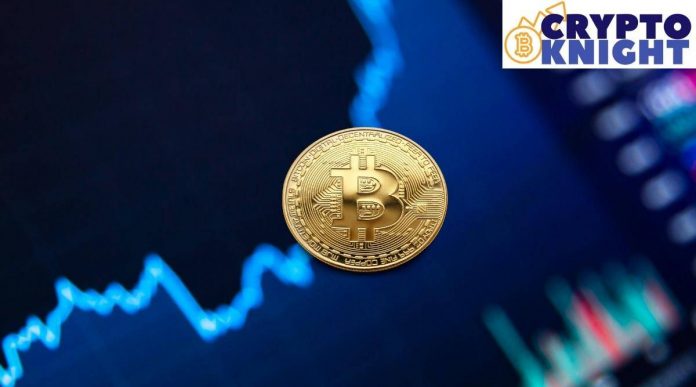“Why should I see a therapist, I don’t have a problem,” said 24-year-old Akshay Gollelu, a cryptocurrency trader, who “lost everything” while trading in crypto-assets.
He told indianexpress.com that “he doesn’t sleep at times, and keeps on looking at the trading chart” to gain a quick profit. Gollellu, however, says crypto addiction “is a normal thing within the community” and refuses to see a therapist because he believes that “it does not need help”.
Like Gollelu, several crypto traders are addicted to trading—and this is taking a toll on their mental health. If you have a friend who’s “into crypto”, and does not want to “HODL”(slang for holding crypto assets), it’s high time to check in on them.
In today’s column, we discuss how crypto trading has an adverse effect on mental health and how you can rectify this before it’s too late.
Why is cryptocurrency so addictive?
The cryptocurrency market, unlike the stock market, is open 24 hours. Fueled with volatility and uncertainty, users can trade globally—creating a perfect source of a dopamine rush, making the crypto market even more addictive.
Accessing crypto is now easier than ever. Trading in cryptocurrency is extremely simple, all you need is a bank account, a crypto wallet to store your crypto assets, and a mobile device making it easier to access and navigate your crypto.
Another major factor that makes crypto addictive is the idea that it is a quick way to earn large profits. Undoubtedly, people have made it big on crypto but not everyone has.
The common belief in the crypto circle is that ‘timing is everything’, and with crypto going mainstream, traders are always under the illusion that a trick or a technical analysis could make them hit the jackpot at the right time. This is what makes traders more inclined to take greater risks and engage with the market more frequently.
Notably, cryptocurrency traders do not profit on every single trade, nor do they make losses on every single trade. But what they hope is to make a profit even after a string of losses, which pushes them to trade again.
Lastly, a common habit of crypto traders is obsessing over the loss but being relatively emotionless to gain. This drives them to invest more and more time as well as money to win back losses.
Are you addicted?
Crypto addiction is real but how do you know whether you are addicted to crypto trading?
“When it comes to the crypto world, it’s been observed that a lot of youngsters are choosing to invest in this rather than stocks and mutual funds because it is (as they describe it) ‘easy to understand and follow’,” Nida Shaikh, a Pune based clinical psychologist told indianexpress.com while sharing red flags that everyone should watch out for.
Shaikh believes that the volatility in the crypto space gives the distracted mind something to be thrilled about and hence replaces the social media scrolling or video games very efficiently because it promises ‘growth of investment’.
However, most traders do not pay attention to the risks attached and are rather focused on the immediate gratification of the process.
“Repeatedly opening the trading app and checking current selling prices of the bought coin, is a huge red flag,” she said.
Some other massive red flags that should be noted are:
#Urge to invest more with hopes of gaining more
#Feeling restless when family members or friends prevent you from checking the crypto app too frequently
#Trying to get back lost money by investing in another coin that may be ‘trending’
#Asking others to invest for you when you are short of money
Tips to overcome crypto addiction
Every crypto trader should focus on learning good crypto fundamentals before investing in digital assets.
One good question to ask yourself is: how many crypto wallets do you have? And how much crypto is being stored in it? Think about how it would affect your life if the wallet gets completely wiped.
If you own a single wallet and have your assets stored in it, a good idea would be to create multiple wallets and split your crypto across these wallets. So the next time you subsidise your funds, and in a scenario where you lose funds, at least you would have backup funds available.
For those tackling crypto addiction, what’s important to understand is that no matter what you do, you’re going to miss pumps, and there is always a better coin or an NFT collection available in the market. Projects are booming everywhere, you have plenty of time to book profits, and there is no need to rush.
Secondly, try to learn from your mistakes. Don’t constantly make the same mistake. Don’t keep investing in coins that promise immediate profits—look for long term investments, not short term coins.
Most importantly, be empathetic for the happiness of others. If you see a project that is mooning right now, there are hundreds and thousands of people experiencing that same kind of euphoria, be happy for them, it will certainly lighten you up a little bit as well.
Further, solidify a strategy that fits your lifestyle and personality. Keep track of the time when you use a crypto exchange or platform. Don’t keep watching the charts, minute by minute. Play smart, put a set notification for certain price marks, or maybe a stop loss if you are on an exchange where you can program that automatically. Doing this makes a fixed routine and tackles addiction.
If you are just starting in the crypto space, then avoid relying upon crypto as your full-time income. Have a secondary source of income, and put some of the earnings from it as an investment.
According to Shaikh, crypto traders should avoid having the trading app on their phones. It will prevent them from frequently checking the coin statuses. “Login to your account through a PC or laptop and ‘do not save password’. The idea is to make the login process longer and more tedious to avoid logging in repeatedly,” she said.
Get some human touch. Go out with your friends and family, and spend time with them. This will make you feel calm amidst the crypto volatility storm. “Have a monthly limit on the amount you want to invest in crypto and do not exceed it no matter how tempting the growth seems. Educate yourself on the impact global issues have on the crypto market by exposing yourself to economic news for a maximum of 15 minutes a day,” she added.
Remember, If you do need help, please go see a professional. There’s no shame in doing so.
Last word
Crypto volatility combined with the debilitating effects of the Covid-19 pandemic can cause deteriorating effects on mental health.
The good news is that several individuals and platforms are taking mental health seriously now. Blockchain technology enables communities to create support groups to destigmatize talking about mental health issues and offer new ways for those with them to cope.
Credit: Source link






















 Bitcoin
Bitcoin  Ethereum
Ethereum  Tether
Tether  Solana
Solana  USDC
USDC  Lido Staked Ether
Lido Staked Ether  XRP
XRP  Dogecoin
Dogecoin  Toncoin
Toncoin  Cardano
Cardano  Shiba Inu
Shiba Inu  Avalanche
Avalanche  TRON
TRON  Wrapped Bitcoin
Wrapped Bitcoin  Bitcoin Cash
Bitcoin Cash  Polkadot
Polkadot  Chainlink
Chainlink  NEAR Protocol
NEAR Protocol  Polygon
Polygon  Litecoin
Litecoin  Internet Computer
Internet Computer  Uniswap
Uniswap  LEO Token
LEO Token  Dai
Dai  First Digital USD
First Digital USD  Ethereum Classic
Ethereum Classic  Hedera
Hedera  Aptos
Aptos  Stacks
Stacks  Mantle
Mantle  Cronos
Cronos  Stellar
Stellar  Cosmos Hub
Cosmos Hub  Filecoin
Filecoin  OKB
OKB  Render
Render  Renzo Restaked ETH
Renzo Restaked ETH  Immutable
Immutable  XT.com
XT.com  Pepe
Pepe  Bittensor
Bittensor  Arbitrum
Arbitrum  Maker
Maker  dogwifhat
dogwifhat  Wrapped eETH
Wrapped eETH  The Graph
The Graph  Optimism
Optimism 
